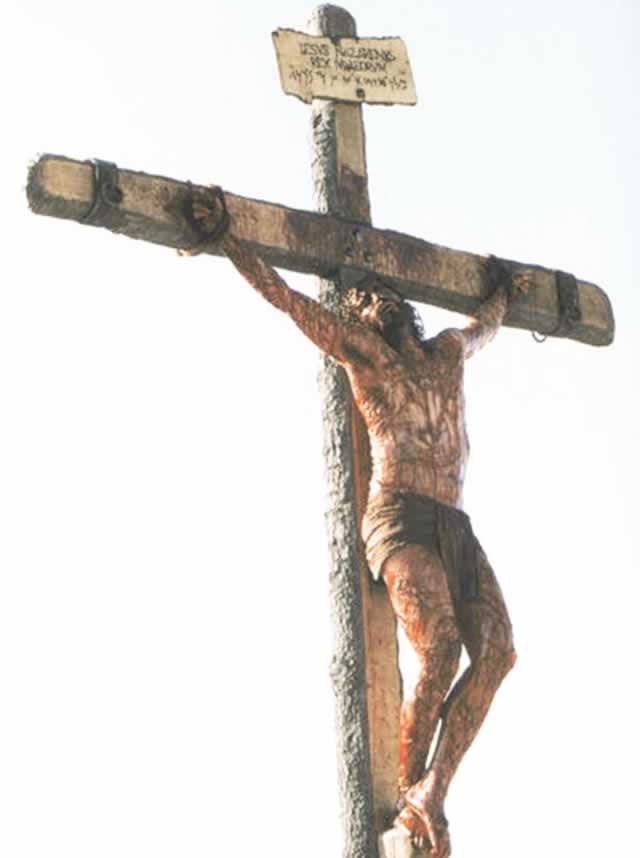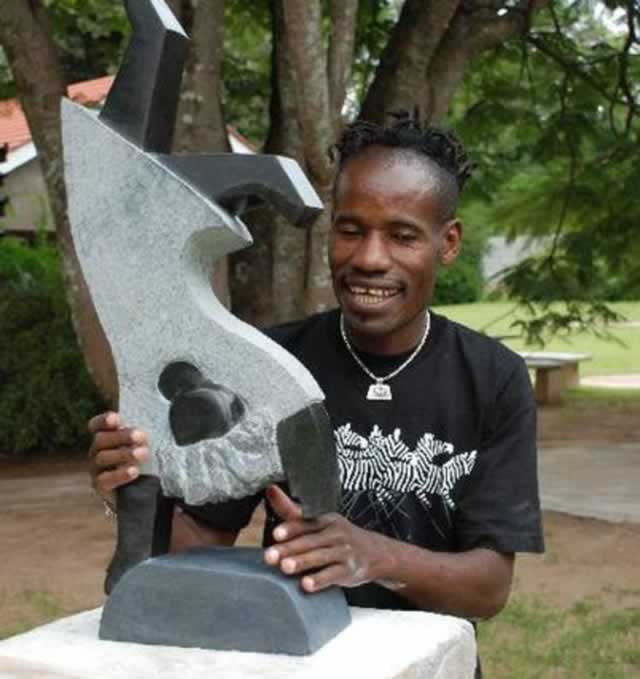The cleansing of sin on Good Friday

As Good Friday approaches, I am reminded of the suffering of Christ more than any other time during the year. And I feel guilty of sin. And yet, before knowing about Christ and his suffering on the cross, I did not feel as guilty of sins as I do now. In fact, I was not guilty at all.
Right in the middle of our village church, high up above the altar is a brand new statue of Jesus Christ donated by my cousin who is a priest in Latin America.
He sent the statue with the help of Catholic friends over there.
When it was announced in church a few weeks ago that the statue did not pay any customs or tax duty to come into Zimbabwe, many people ululated and praised God.
“Year after year, they keep on showing a picture of Jesus with no proper clothes on the cross,” said Piri last week when we were sitting under a big shade outside the village church on the hill.
The service was over.
Earlier on, we had arrived to join in the drum and hosho playing, singing and dancing in the church.
There were days when hosho and the drum were not allowed in the church.
But that was the time when the first missionaries wanted us Africans to show little emotion, to remain calm, repentant, composed, humble and submissive to them and to the teachings of God.
The congregations of mostly women dressed in blue and white Catholic women’s uniform were having a meeting to prepare for the Good Friday service and all-night prayer.
My cousin Reuben, the one who lives in Australia and is here on a long extended stay, was filming the meeting with his iPad.
“Ko, why does Jesus wear next to nothing?” asked Piri, with her legs outstretched on the wraparound cloth that we were both sitting on.
Sometimes, Piri sees situations that one is supposed to ignore and not question.
She is the kind of person who does not process her thoughts before she blurts out exactly what she thinks.
“So, why don’t they dress Jesus up instead of subjecting all those women’s eyes to a naked Son of God?”
“That is the way it has always been. Even in Rome,” I said, even though I have never been to Rome.
But I could imagine many statues of Jesus with his wavy blonde hair and his blue eyes looking down at the people from the cross.
“The only Jesus picture I have seen is that of a white man. But Reuben says in some countries Jesus is black,” Piri said.
Then I recalled the conversation when Reuben said he went on a march in Latin America and he saw people carrying a black Jesus adorned with white flowers during a procession.
The priests over there were also black but everyone in the congregation was white.
I told Piri that sometimes if people listen to Reuben too much, they may end up getting very confused spiritually. One time Reuben told us that the earliest known image of Jesus Christ as a black man is in the Coptic Museum in Cairo, Egypt. Reuben said during the time when Jesus Christ descended from the tribe of Judah, the issues of racial difference did not exist.
Ancient Egyptians never referred to one another as “black” or “Arab” or “white”.
People were just people and the racial difference was of little significance.
Racism was introduced by the Europeans when they started using various colour codes to create a societal hierarchy and to call others “slaves”.
Then racism increased with colonialism.
But some Christians did not challenge this racial hierarchy that supported the slavery or colonisation of African people.
Such historical issues must be debated even in church.
Reuben also said that Christianity is just one religion that came to Africa and it was embraced without too much questioning.
But there are other important religions around the world such as such as Taoism, Buddhism, Islam, Hinduism, Judaism, existing alongside Christianity. He was thinking of becoming a Buddhist during his next trip to Thailand.
“But, Sis, Europeans see Jesus as their ancestor and that is why they worship him. We should have a similar kind of Jesus who looks more like us,” Piri said. She has been spending too much time with Reuben.
“Does it really matter?” I asked Piri, then I started flipping through the Bible, looking for an encouraging verse.
The Bible says we were all born sinners because Adam and Eve sinned in the Garden of Eden.
Then Jesus’ death and resurrection brought us salvation from sin. Many of us believe that.
But, sometimes I also go through these troubling doubting moments of disbelief and lack of faith.
What if Adam and Eve had not eaten that apple?
But I do not talk about any of my doubts because that would appear as if I am not a Christian.
Besides, you should never ask for proof when it comes to spiritual matters. You just need to have faith.
Every year, when Good Friday comes close, I want to get close to God and eternal life.
I see the image of Jesus on the cross and I am drawn towards His suffering.
I seek cleansing from sin and guilt for the many sins that I have committed knowingly and unknowingly. Then there are those sins that I have dreamt about, imagined or possibly fantasised about.
I know that without atonement from all these sins, I am bound to be sent away to the Devil and burn in hell fire forever. That perpetual fire will come to me when I am already dead.
The Devil will stand beside me and laugh as I burn in hell. I really do not want to spend the rest of my days when I am dead in the company of the Devil.
After all these years of listening to the biblical message, why do I still feel that I am not free from sin?
It has been many years since I first heard about the Good News and salvation from sin.
When I was still living in the village homestead, I went to St Columbus Anglican School.
The priest called Baba Mutemarari preached about our sins and prepared us for baptism and change of name from an African one to a Christian one.
He said you cannot be a new person in Christ unless you abandon the native name and take an English Christian one. A full understanding and recitation of the Nicene Creed was mandatory before any one of us could be baptised with a new English name.
For weeks, we read the Nicene Creed in preparation for baptism at Easter time. Looking after goats, herding cattle, fetching water, going to school, we memorised the Nicene Creed. Even after so many years, I can recite it in Shona: “Ndinodavira kuna Mwari Mumwe, Musiki we Denga nepasi . . . ”
In English, my memory is even better: “I believe in one God, the Father, the Almighty, maker of heaven and earth, of all that is, seen and unseen …
Because I passed the Nicene Creed, I got baptised with a new English name.
Then I left the Anglican school and went to the Methodist boarding school where two missionaries – Miss Hutchinson and Miss Davies – were ready to receive and educate many village African girls like me.
They were old and kind, having spent years working, preaching, teaching and mentoring Africans.
As Good Friday approaches, I am reminded of the suffering of Christ more than any other time during the year. And I feel guilty of sin. And yet, before knowing about Christ and his suffering on the cross, I did not feel as guilty of sins as I do now. In fact, I was not guilty at all.
Growing up here in the village before the Nicene Creed and change of name, I think I was just fine.
I knew what was right and wrong from the village elders. Anyone of the adults had the right to discipline me, even if he or she was not my mother, aunt or grandmother.
In those days, the elders referred to a good person as munhu, meaning he was a human being with certain behaviours and characteristics that made him a good human being. Munhu. This person was imbued with the goodness, compassion, respect, honesty and the dignity of the human being, munhu ane hunhu.
In simple English terms, hunhu meant a philosophy or belief in “being human”. A bad person was referred to as a human being who lacked humanness, haana hunhu. He had no ethics or morals. Hunhu was the African foundation of our value systems, our intense humanness – caring, sharing, respect and compassion, a philosophy of African life rooted in the world of our ancestors and connected to God, Mwari Musikavanhu.
Jesus Christ and the idea of sin came when hunhu was already here.
We embraced Christianity because when you compare it to our hunhu, the Christian religion was not bringing anything totally new or alien to our belief system. Jesus’s teachings served to complement hunhu. And they still do.
I still want to believe in “hunhu” because this philosophy of life makes me feel happier with no fear of hell after I am dead.
At the same time, when I look at Jesus on the cross dressed in His loin cloth, I also want to be cleansed of sin on Good Friday so that one day, I too can go to heaven and live happily ever after.
Dr Sekai Nzenza is an independent writer and cultural critic.










Comments